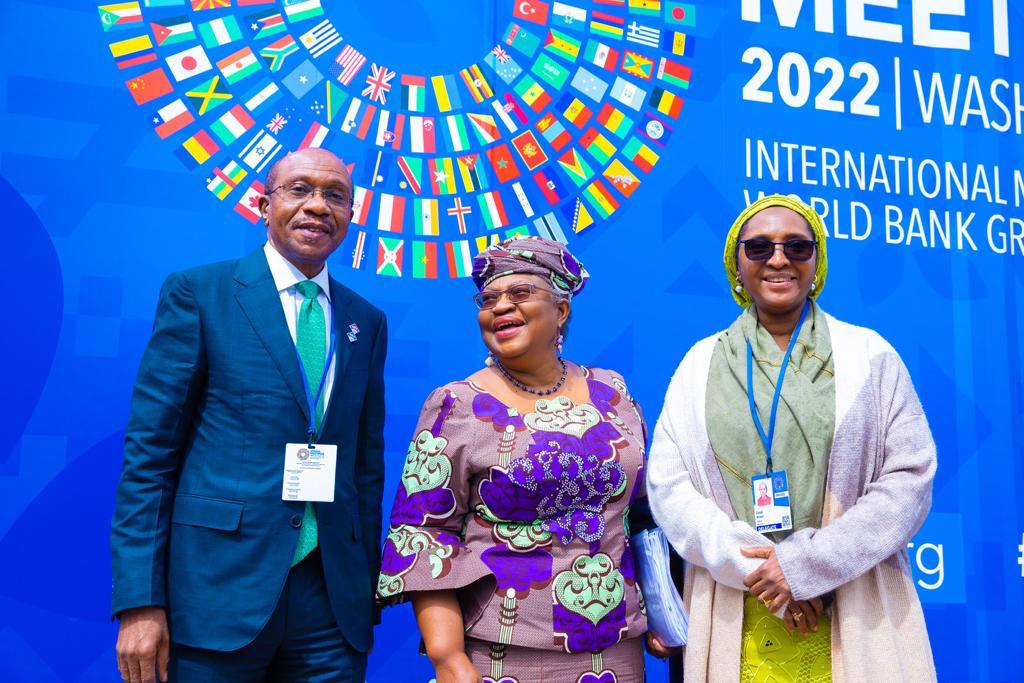Business
Petroleum Stakeholders Strategise For Post-Subsidy Era

Stakeholders in Nigeria’s mid stream and downstream petroleum sectors have urged the Federal Government to outline strategies for a sustainable future in the downstream sector.
The appeal was made during a virtual online workshop, Friday, in Lagos with the theme “Deregulation of the Nigerian downstream sector: The day after”.
The Tide’s source reports that the workshop was organised by the Nigerian Petroleum Downstream Industry in collaboration with the African Refiners and Distributors Association (ARDA).
The stakeholders at the workshop called on the government to implement appropriate palliatives in the form of public transportation and freight of agricultural produce.
They urged government to ensure transparent and effective communication, improve access to foreign exchange, trade finance, guarantee strategic stock, and provide access to crude oil for refineries ahead of the plan to embark on the total removal of petrol subsidy.
The workshop offered the industry regulator and all players across the midstream and downstream value chain the opportunity to deliberate on measures that needed to be put in place ahead of the full implementation of the Petroleum Industry Act (PIA).
The participants also focused on the need for operators in the industry to professionalise the midstream and downstream petroleum sectors ahead of the take-off of full deregulation.
The Authority Chief Executive of the Nigerian Midstream and Downstream Petroleum Regulatory (NMDPRA), Mr Farouk Ahmed, said the Authority would allow free market pricing once the sector was fully deregulated.
On his part, the Executive Director, Distributions System, Storage and Retail Infrastructure of NMDPRA, Mr Ogbugo Ukoha, spoke on the role of the regulator in pricing, safe operation and enforcement, while the Managing Director, CITAC Africa, Gary Still, touched on market liberalisation or elimination of subsidies.
Also speaking, the National President of the Nigerian Association of Road Transport Owners (NARTO), Alhaji Othman Yusuf, warned that the full deregulation of the downstream sector and complete removal of petrol subsidy would bring about opportunities and challenges.
The National President, Independent Petroleum Marketers Association of Nigeria (IPMAN), Elder Chinedu Okoronkwo, revealed that the marketers are in full support of the government’s plan to embark on full deregulation of the downstream sector.
Okoronkwo, who was represented by Mr Mike Osatuyi, IPMAN’s National Operations Controller, warned Nigerians to prepare to pay up to N750 for every litre of petrol after the removal of subsidy.
He added that the pump price is likely to drop to around N500 if the Government encourages the Central Bank of Nigeria (CBN) to provide forex to marketers at the official rate.
Okoronkwo also urged the government to channel savings from subsidy provisions to provide palliatives to the masses, adding that government must be sensitive to resentment from Nigerians.
Mr Taiwo Oyedele, the Fiscal Policy Partner and Africa Tax Leader at Pricewaterhouse Coopers (PwC), charged the government and the regulator to identify potential pitfalls that could trigger resentment from citizens before, during, and after the removal of the petrol subsidy.
According to him, deliberate public sensitization, industry engagement, and collaboration with civil society organizations are needed to aid public buy-in during the implementation of full deregulation.
He said in the course of implementing the policies, the government’s interpretation of its strategy must be issue-based and not confrontational.
Executive Vice Chairman of the Federal Competition and Consumer Protection Commission (FCCPC), Mr Babatunde Irukera, advised the industry regulator to establish quality and safety standards for petroleum products.
Irukera, represented by Mrs Morayo Adisa, his Technical Consultant, said this include fuel quality standards, safety regulations for storage and transportation, and environmental regulations.
The Chairman of Major Oil Marketers Association of Nigeria (MOMAN), Mr Olumide Adeosun, who doubled as the facilitator, stated that the virtual workshop aimed at addressing key challenges and outlining strategies to ensure a sustainable future for the petroleum downstream sector.
He said safeguarding consumer interest in a deregulated environment was also significant, adding that the workshop provided data-driven insights into the sector’s growth potential.
“The importance of connecting to regional markets, positioning Nigeria as the regional refining hub, and fostering relationships with international service providers.
“Including rating agencies, finance and governance institutions, and aligning with the goals of the Conference of the Parties to the United Nations Framework Convention on Climate Change (COP), was reiterated at the workshop.
“Ultimately, this collaborative workshop provided a platform for stakeholders to share knowledge and develop strategies to ensure the Nigerian Petroleum downstream Industry remains a strong, competitive force while transitioning to a more sustainable future”, he added.
Business
Bank Supports Female Entrepreneurs With Grants
Kolomoni Microfinance Bank has awarded grants to five female entrepreneurs to boost their businesses as part of its commitment to promoting women in business.
The initiative, organized to mark International Women’s Day, was themed “Accelerate Her Growth.”
According to the bank, the decision to support women was inspired by World Bank data, which shows that 41 percent of Nigeria’s micro-businesses are owned by women.
Delivering the keynote address, business strategist, Ebun Akinwale, emphasized that entrepreneurship requires resilience, creativity, and passion.
She illustrated this by recounting her own business challenges and highlighting the critical role passion plays in overcoming obstacles.
The event underscored Kolomoni’s mission to empower women and support small businesses in Nigeria.
Other speakers at the occasion were Odunayo Oyebolu, a seasoned entrepreneur; Victori Ajiboye, a marketing strategist with global experience; and Simi Ojumu, a finance expert.
The beneficiaries said the financial support was a validation of their hard work and a boost of confidence towards scaling through in their businesses.
The winners were selected after sharing their entrepreneurial journeys and presenting business proposals for financial assistance from the bank.
Business
Nigerian SME Awards: Providus, Access, Others Compete For Honor
The 8th edition of the Nigeria Small and Medium Enterprises (SMEs) Summit and Awards (Nigeria SMEAwards) is set to take place in Lagos for the first time in its history, marking a significant milestone for this prestigious event.
Endorsed by the Small and Medium Enterprises Development Agency of Nigeria (SMEDAN), the annual awards celebrate the entrepreneurial spirit driving Nigeria’s economy.
The visionary convener of NigeriaSMEAwards 2025, Adedayo Olalekan, said, “Governors from Zamfara, Sokoto, Ebonyi, Borno, Enugu, Ekiti, Benue, and Kaduna States have all implemented transformative initiatives that have greatly benefitted local enterprises.
“Their contributions will serve as a beacon of inspiration for the nation.”
Speaking at a recent press conference in Lagos, Olalekan emphasised that the event would introduce a fresh and unique approach, moving away from tradition.
“Despite economic challenges, Nigerians continue to show an unwavering commitment to progress”, he said.
He noted that the awards will not only honor outstanding individuals, but also recognise the critical role state governments play in nurturing vibrant SMEs.
“State governments have been instrumental in fostering a supportive environment for SMEs, which in turn benefits both the awardees and the larger economy.
“With major banks like Providus, Access, and First Banks competing for top honors, the 8th NigeriaSMEAwards promises to be a night of celebration, recognising exceptional contributions to Nigeria’s SME landscape”, Olalekan added.
Amid global challenges such as inflation, geopolitical instability, and the ongoing conflict in Ukraine, Nigerians continue to show remarkable resilience.
Their efforts, according to reports, have contributed to job creation, economic growth, and overall prosperity, with SMEs at the forefront of this success.
This year’s awards will recognise governors who have made significant strides in advancing the SME sector within their states.
Business
SMEs Experts Urge MSMEs To Remain Focused
Small and Medium Enterprises (SMEs) consultants in Rivers State have called on entrepreneurs to be focused and avoid distractions.
The experts, who were speaking on the recent developments about the change of leadership in the state, said entrepreneurs need to put more efforts in their businesses in order to break even in the present situation in Rivers State.
Speaking in a chat with The Tide, an international SMEs consultant, Amb. Larry Goodwill Ajiola, said the political moves is capable of distracting SMEs who are not grounded in their businesses, adding that “the serious minded business men and women would utilise the opportunity to increase their revenues”.
Amb Ajiola, who is the President and Chief Executive Officer (CEO) of Rumuomasi Co-operative and Credit Society Limited, Port Harcourt, said, “Rugged entrepreneurs look out for business opportunities in situations around them, whether good or bad”.
He reiterated that the loan facility given to 3,000 SMEs in the state revived and expanded businesses, adding that the empowered businesses should continue to push, no matter the situation.
“credit is a powerful tool for achieving financial security.
“We can only keep imagin the economic value that the over 3,000 MSMEs would add to the positive economic dynamics of Rivers State and the Local Government Areas in terms of Gross Domestic Prooduct (GDP), increased tax returns, employment creation, income distribution, and production of goods and services”, he said.
Another SMEs Expert, a business consultant and SMEs trainer, Mr. Chisom Sam-Orji, in his advice, noted that every SME in the state should realize that change is the only constant thing.
He said SMEs should also know that “tough times never last, but tough people do”, adding the need for every entrepreneur to stay focused on creating value and remain resilient.
“This is not the time to be distracted by every noise around your space, but to maximize every time you have to focus on the essentials and keep creating value.
“For some people, it may just be the time to diversify, create new products and services to serve a new or existing market. But this must be based on the facts available to you via research and market surveys”, he said.
The SMEs expert also said the present time in the life of an entrepreneur is a time to cut off unnecessary excesses that surround one’s business.
“Those extra costs that may hamper your growth in this season and beyond, and focus on just essentials.
“SMEs should find certain leverages that are available to aid their business growth. This could be in form of grants, knowledge, and other leverage tools.
“Collaboration is one big way to grow in this season. Finding ways to collaborate with like minds instead of competing could enable a product or service gain advantage in the market and beyond.
“They should also find ways to sustain and grow their customer relationship as this is key to sustaining business flow. They must seek new and efficient ways to serve their customers and gain their loyalty”, he stated.
He further called on every entrepreneur to keep building capacity and never take their eyes off their visions, adding the need to muster every courage it takes to keep building and moving forward.
Lilian Peters
-

 News4 days ago
News4 days agoWE’LL ENSURE SONGHAI FARMS BECOMES FUNCTIONAL SOON -IBAS
-

 Politics4 days ago
Politics4 days agoEmbrace Christ’s Teachings, Dep Speaker Tasks Citizens At Easter
-

 News4 days ago
News4 days agoShettima to visit Plateau Today Over deadly attacks
-

 Education3 days ago
Education3 days agoOtu Inaugurates UNICROSS, UEE’s Governing Councils
-

 News4 days ago
News4 days agoCouncil Boss Sues For Love, Unity
-

 News4 days ago
News4 days agoIBAS, FAMILY CELEBRATE EASTER AT GOVERNMENT HOUSE CHAPEL
-

 Politics4 days ago
Politics4 days agoEkiti YPP Felicitates Christian Faithful At Easter
-

 News4 days ago
News4 days agoUS Supreme Court stops Trump from deporting migrants

